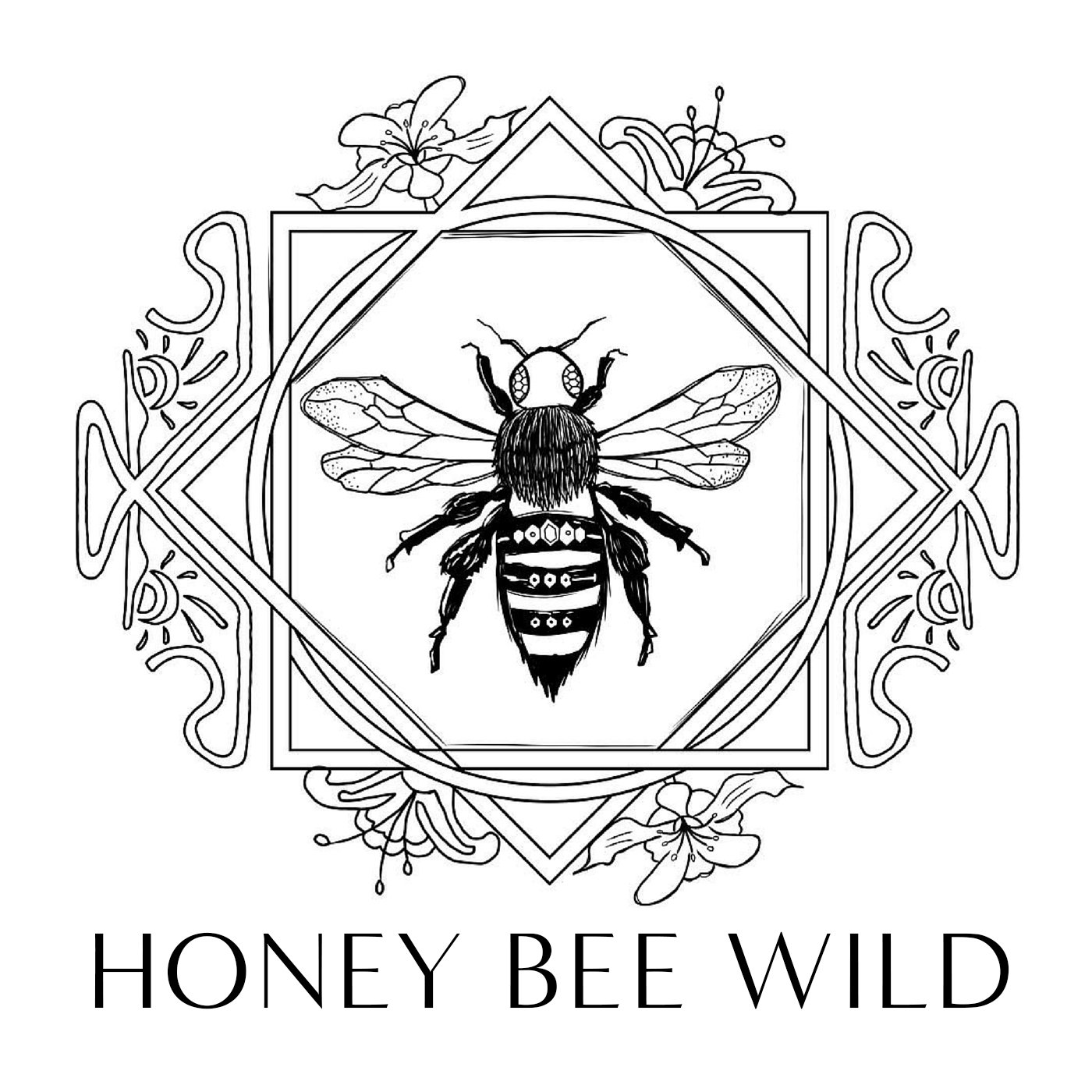Elephants who Remember Water ~ Grief in Late-Stage Capitalism
Grief hides in strange places. This weekend I decided to assess my business month to month, starting in January 2022. As a creative person, getting into the nuts and bolts of business can feel foreign and clinical. However, honey bees are impeccable mistresses of their homes; always cleaning, always tending. As the only income stream in my wee family, this impeccability both necessary and empowering.
When I compared monthly incomes I discovered something jarring. From January to June my income was a fountain of abundance. I was overflowing with creative juice and course offerings. My business was flowering in a way it never had. However, starting in July, my income dropped by 30%….and kept dropping by roughly the same percentage month by month.
What happened? On June 24, my father died. I helped wash his body. I clothed him. I ringed his body in flowers, I held his cold hand, I wrapped him in the white shroud, I watched the undertakers carry him away. The next day I developed asthma after an anxiety attack.
It’s been eight months, and I have not been able to keep up. I can’t keep up with emails, with friendships, with creative impulses, with my body’s needs. The best of me goes to my daughter.
Our society has no room for grief. Late stage capitalism has no room for grief. Despite all the support I’ve sought (somatic, therapeutic, shamanic, etc), my life has no room for grief. Not in the way we need it. I long to be gathered up by the women, taken to the cave by the sea, sung over, drummed back in, nourished, anointed with healing oils, cried over and with, bathed, buried and reborn.
We hear so often about the importance of slowing down. It’s a catch phrase climbing the ranks like “self-care”. It is an essential turn towards health, but the call to slow down can so easily morph from a loving invitation into harmful thinking patterns. Slowing down is not all on you. You are not failing if you struggle to make room for the space-taking grief animal. Society is also not failing you. Society is all of us, and so many of us are trying. We are neither victims of society, nor victims of our choices. We are a collective organism seeking to heal a greater planetary grief, without knowing how it is we will survive. We are feeling beings. We feel things through every sensory aspect of our bodies. We feel subtle changes in the air, a person, a home. We feel the sentience of rocks, mountains, and rivers. We feel the dying, we feel the imbalance, we feel the disease. We also feel the birthing, the unfurling, and the vibrant.
When the queen bee dies in a hive, the whole hive changes tone. To human ears it sounds like the hive is moaning. To the sensitive self, you can feel the distress. This social super-organism is collectively grieving. They, as one body, are keening. They often stop working for a time. They loose motivation. The only way for them to survive is if a bee guardian intervenes, and brings them a new queen, but even then, the genetic makeup of their being is forever changed.
Our life is this oneness, and when a part of our world is lost forever, every aspect of our life is altered: body, finances, friendships, family, home, sexuality, and creativity. We are both the bees and the keeper. When a beekeeper hears the moaning, they know something is wrong. When we audibly grieve, when the pain is recent and acute, our human collective rallies and responds.
But what happens after the keening? The hive seems to go back to normal, collective pollen and nectar. But it is far from normal. The hive has no fertility. The have no going to raise. They have no mother to help them continue. In a few months, they will dwindle and die.
I’m not feeling that level of grief. I’m not dwindling to nothingness, but this more somber aspect of bees’ lives makes me think of all the hidden ways we continue to grieve. All the places grief is still affecting our creative life, and our relationship to fertile growth.
How then, do we reconcile the long road on grief with the need to sprout and flower? Or with the need to make a living? I turn to the Earth to remind me that even in the most fallow periods, the soil is quietly regenerating. I remind myself that time doesn’t just move in seasons, it also moves in geological ages. It moves in the way that certain seeds move, waiting years and years, until the wildfire comes and causes them to germinate.
I think about how elephant matriarchs will remember a watering hole that is usually dry, but by reading the land and the seasons, knows to lead her herd to this spot, somehow remembering it after decades, and somehow knowing that this year, the water will be flowing.
Always, I find the mirrors for hope in the land. In the stories of our many kith and kin.
In the meantime, rather than starting my Monday in a panic of how to generate abundance again, I took myself to a favorite cafe for breakfast (something I haven’t done since pre-pandemic). And then I opened my journal and read the long list of creative ideas I’ve had over the last two years, knowing that within them, are more than enough seeds to make a garden.



